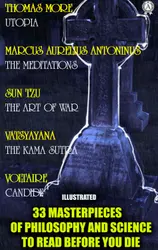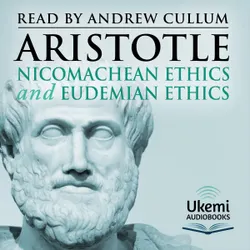Aristotle's "Poetics" stands as a seminal text in the foundation of literary theory, wherein he meticulously analyzes the principles of dramatic and epic poetry. Written in the 4th century BCE, this work deftly bridges philosophical inquiry with the art of storytelling, presenting concepts such as mimesis, catharsis, and the unities of time, place, and action. Aristotle's analytical style combines empirical observation with deductive reasoning, offering a systematic inquiry into the nature of poetry and its emotive effects on audiences. His exploration of tragedy, in particular, delineates the characteristics of heroic narratives and serves as a cornerstone for the future development of dramatic literature in the Western canon. As a towering figure in ancient philosophy, Aristotle's extensive educational and intellectual background informed his literary critiques. A student of Plato and a teacher of Alexander the Great, he cultivated a profound understanding of human nature and the societal roles that literature plays within it. His holistic approach to knowledge also encompassed natural sciences and ethics, allowing him to draw interdisciplinary connections that enrich his examination of poetic form and function. "Poetics" is essential for anyone keen on understanding the intricate mechanics of storytelling and dramatic art. Whether you are a scholar, a writer, or simply an avid reader, Aristotle's insights will deepen your appreciation for literature's ability to reflect and influence human experience. Engage with this timeless work to unlock the enduring principles that continue to shape narrative art.

Yale Classics (Vol. 1) : Exploring the Essence of Ancient Wisdom and Literary Brilliance in Western Thought
Aristotle, Plato, Euripides, Gilbert Murray, Epictetus, Pindar, Theocritus, Homer, Plutarch, Aeschylus, Sophocles, Aristophanes, Herodotus, Anacreon, Sappho, Thucydides, Hesiod, Demosthenes, Lysias, Alcaeus, Archilochus, Theognis of Megara, Simonides of Ceos, Bacchylides, Apollonius, Callimachus
book
33 Masterpieces of Philosophy and Science to Read Before You Die (Illustrated) : Utopia, The Meditations, The Art of War, The Kama Sutra, Candide
Thomas More, Marcus Aurelius Antoninus, Sun Tzu, Vatsyayana, Voltaire, Edwin A. Abbott, Aristotle, Dale Carnegie, Gilbert Keith Chesterton, René Descartes, Epictetus, Sigmund Freud, Hermann Hesse, David Hume, Lao Tzu, David Herbert Lawrence, Niccolò Machiavelli, John Mill, Prentice Mulford, Friedrich Nietzsche, Plato, Bertrand Russell, H.G. Wells, Frances Bacon
book
Rhetoric
Aristotle
book
Nicomachean Ethics and Eudemian Ethics
Aristotle
audiobook
Rhetoric and Poetics
Aristotle
audiobook
Aristotle: The Complete Works
Aristotle, Zenith Evergreen Literary Co
book
Aristotle's Complete Works : The Foundations of Western Philosophy and Science
Aristotle, Zenith Crescent Moon Press
book
10 Masterpieces You Have to Read Before You Die, Vol.5 : The Odyssey, The Republic, Meditations, The Divine Comedy, Faust and others
Homer, Plato, Aristotle, Marcus Aurelius, Niccolo Machiavelli, Dante Alighieri, Johann Wolfgang Von Goethe, Leo Tolstoy
audiobookbook
Poetics
Aristotle
audiobookbook
25+ The Big Book of Ancient Classics : The Odyssey by Homer, Meditations by Marcus Aurelius, The Republic by Plato, Poetics by Aristotle and others
Aristotle, Aeschylus, Marcus Aurelius, Euripides, Hesiod, Homer, Plato, Sappho, Sophocles
audiobook
The Parva Naturalia. Sense and Sensibilia
Aristotle
audiobook
The Parva Naturalia. On Sleep
Aristotle
audiobook
